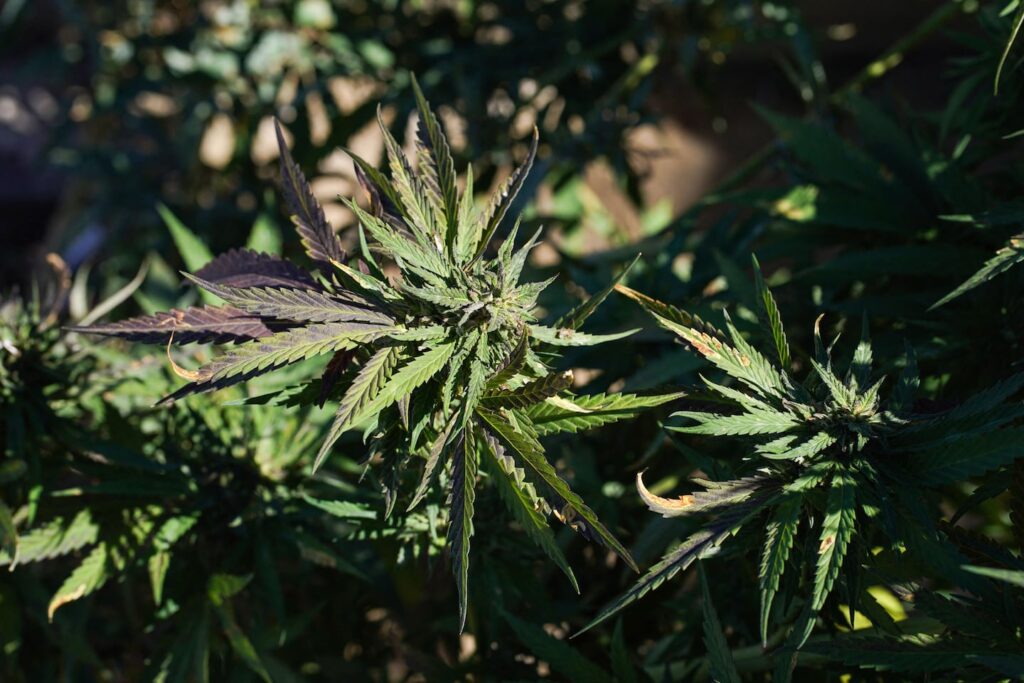Western Massachusetts cannabis cultivator River Valley Growers is suing a neighboring berry farm for allegedly ruining thousands of pounds of marijuana by wantonly spraying chemicals that contaminated its crop.
The lawsuit in Suffolk Superior Court says that the 2022 harvest at Hatfield-based River Valley tested positive for multiple pesticides as a result of actions by Nourse Farms, a producer of berries and root vegetables based in the neighboring town of Whately. Its alleged contamination also prevented River Valley Growers from growing marijuana as planned in 2023, 2024, and perhaps even this year, “likely striking a fatal blow to what remains of RVG,” the complaint reads.
The cultivator estimates its losses amount to $17 million in all.
“It has been a nightmare,” River Valley Growers said in a statement through its attorneys at Vicente LLP. “The repeated incidents of pesticide overspray have all but put River Valley Growers out of business. We had a bumper crop in 2022 that had to be destroyed and haven’t been able to plant since. We simply don’t know whether or when we can safely plant again.”
Nourse Farms did not immediately respond to comment on the litigation.
The state has eliminated cannabis ‘impact fees.’ But many Mass. towns are still charging them.Major Mass. cannabis lab sues competitors, claiming testing fraud Massachusetts cannabis regulators fine companies for record-keeping, pesticide violations
River Valley’s attorneys say the case is the first of its kind in the burgeoning cannabis industry, and gets at the heart of the struggle in cannabis cultivation. An oversupply of marijuana is squeezing small growers in Massachusetts, who are reliant on every last plant to stay out of the red and away from the ballooning list of pot businesses that have shuttered.
In New York, a cohort of marijuana farmers sued the state cannabis agency in November for its “disastrous” rollout of regulations after legalization that they believe have handicapped small operators. In Massachusetts, too, many of the burgeoning outdoor cannabis growers feel threatened by multi-state operator’s expansive operations, in the world of weed or otherwise.
“This case is about the ruination of a small farm by the repeated negligence of a large, multi-state plant producer and supplier,” the River Valley Growers lawsuit reads.
It’s also a matter of agricultural strategy. Massachusetts marijuana cultivators are not allowed to use many pesticides on their crop, which is tested for a dozen or so contaminants before reaching dispensary shelves. The rules on pesticides are laxer for other agricultural operators like Nourse, a commercial farm that may require more chemicals to cultivate useable — and profitable — harvests.
Related: Sun-grown weed is sprouting in Massachusetts. Here’s why.
In the complaint, River Valley said its saga with Nourse began when its deal with a buyer to purchase approximately 47,000 pounds of marijuana fell through two years ago after the crop failed state-mandated pesticide testing. That immediately left the company in a $7 million hole. (River Valley Growers says it has never used pesticides on its plants, since its marijuana was intended to be distilled into cannabis oils and concentrates.)
At the time, another farmer said he captured videos of Nourse applying pesticides in what he believed to be a negligent manner, watching the chemicals turn to mist and float over the property line, according to the complaint.
An investigation from the Massachusetts Department of Agriculture Resources found that Nourse Farms’ pesticides did drift into River Valley’s crop and that the berry farm “did not operate in a careful manner.” The agency instructed River Valley Growers to destroy the harvest.
As the agency’s investigation dragged on for multiple years, River Valley Growers was forced to keep the crop frozen in its facilities, taking up all its storage space for future harvests and preventing the cultivator from growing cannabis “in a legally compliant manner,” their lawsuit said.
River Valley Growers is now seeking a declaratory judgement that would grant them to permission to destroy the 2022 harvest, now considered evidence in the case, as well as monetary damages for lost profits and other expenses.
The suit also lists the Cannabis Control Commission, its interim chair Bruce Stebbins, the Massachusetts Department of Agricultural Resources, and its commissioner Ashley Randle as defendants. (The CCC declined to comment, and MDAR did not respond to request for comment.)
H/T: www.bostonglobe.com



